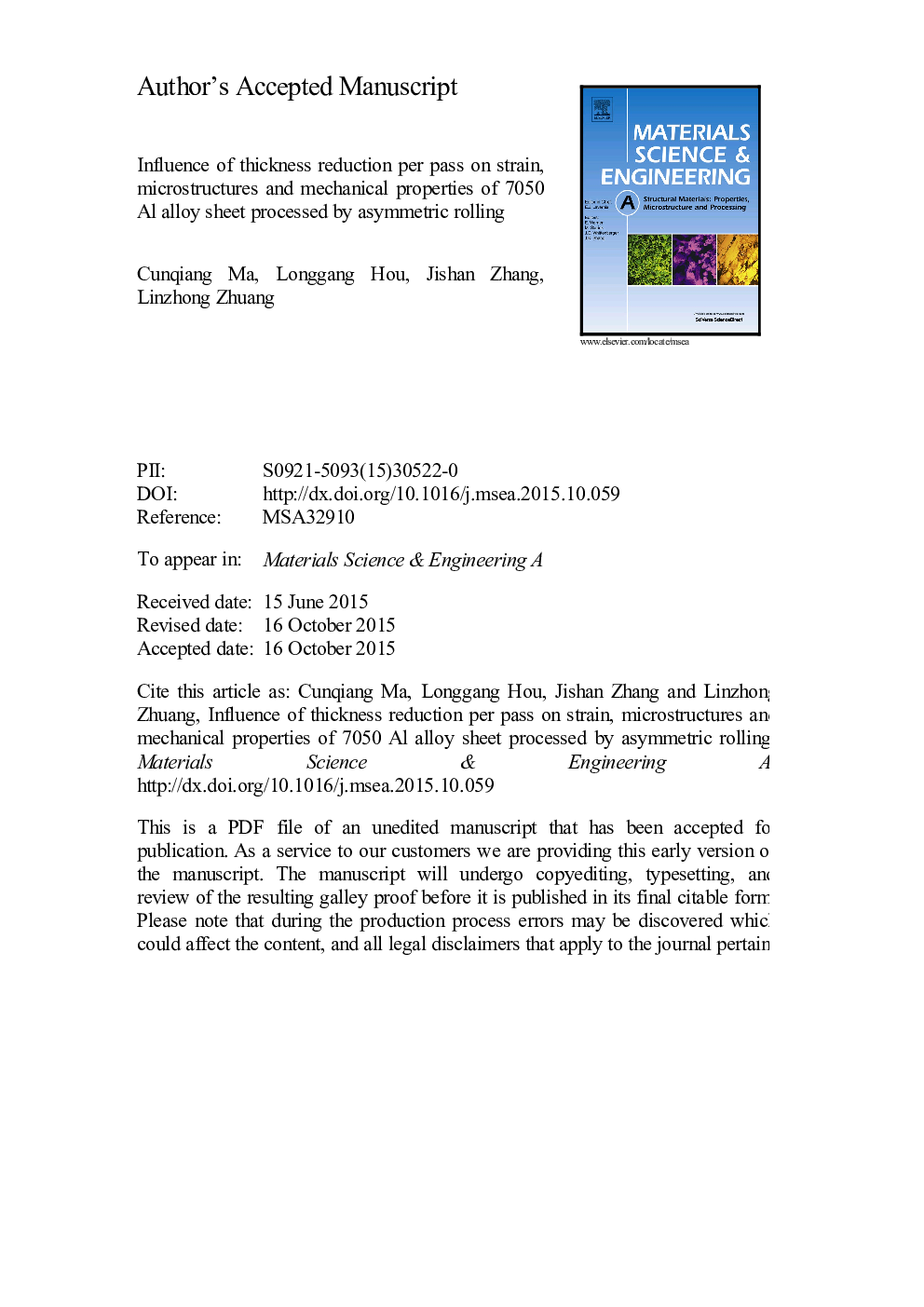| Article ID | Journal | Published Year | Pages | File Type |
|---|---|---|---|---|
| 7976561 | Materials Science and Engineering: A | 2016 | 45 Pages |
Abstract
The influences of thickness reduction per pass (TRPP, 13-75%) on the macro-deformation, strain distribution, microstructural evolution, mechanical properties and their through-thickness uniformities of 7050 Al alloy sheets processed by a series of asymmetric rolling (ASR) are investigated using finite element (FE) and experimental methods. With decreasing TRPPs, the shear distances in rolling direction (RD) between top and bottom surfaces of rolled sheets are increased, resulting in much more shear and equivalent strains, and their homogeneous distribution throughout the thickness of ASR-processed sheets. The quantity of micro-shear bands comprising fine sub-grains with average size <0.5 μm through the thickness of rolled sheets is increased with decreasing TRPPs. In addition, the size of the sub-grains with well-defined boundaries is increased with increasing TRPPs while the dislocation density in their interior is decreased, which could be mainly attributed to the insufficient deformation and more recovery occurred during rolling as well as after. After annealing/recrystallization, the grain sizes as well as their through-thickness homogeneity are improved greatly using smaller TRPPs, which also contributes to the good through-thickness homogeneity of mechanical properties.
Related Topics
Physical Sciences and Engineering
Materials Science
Materials Science (General)
Authors
Cunqiang Ma, Longgang Hou, Jishan Zhang, Linzhong Zhuang,
